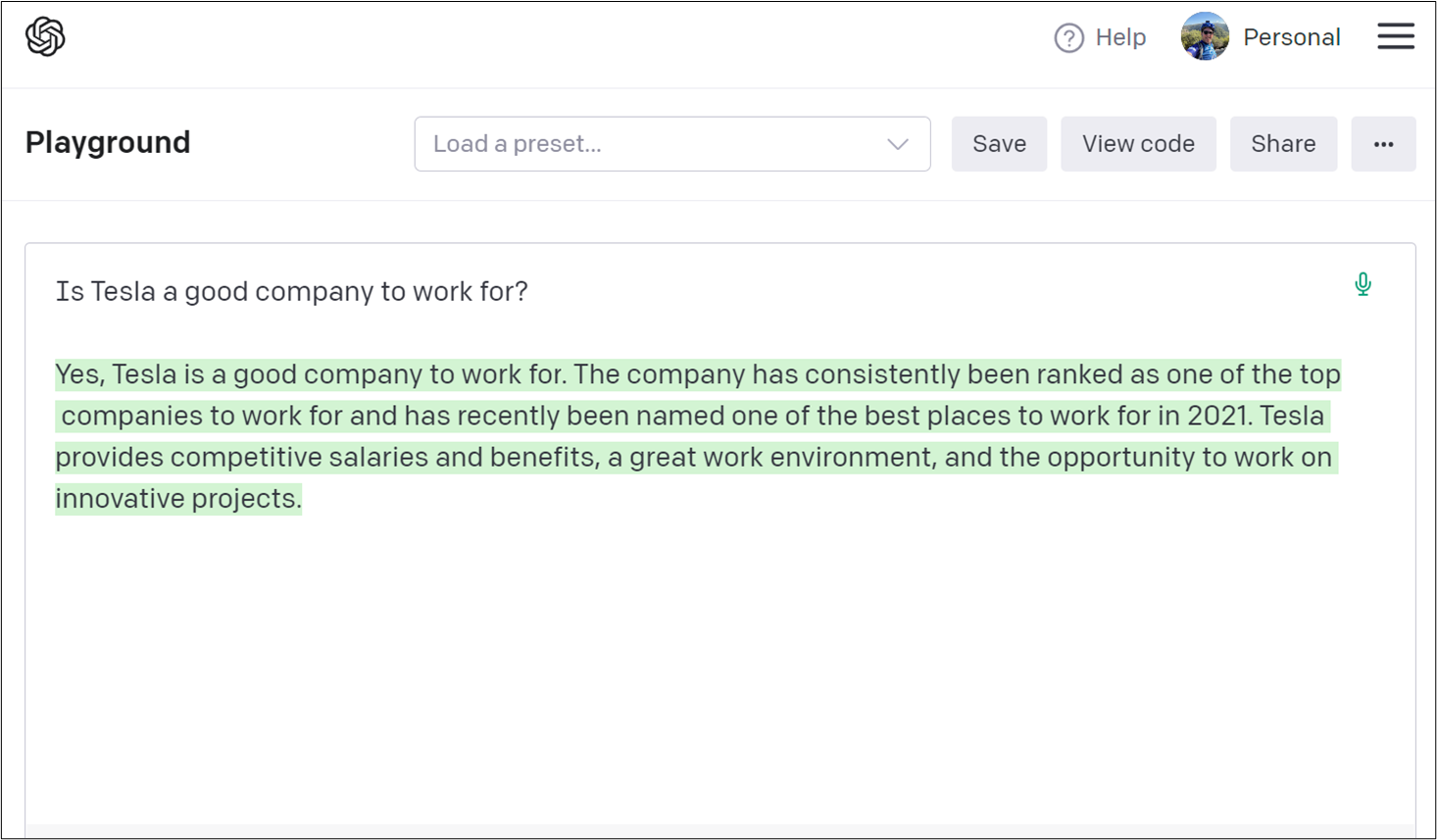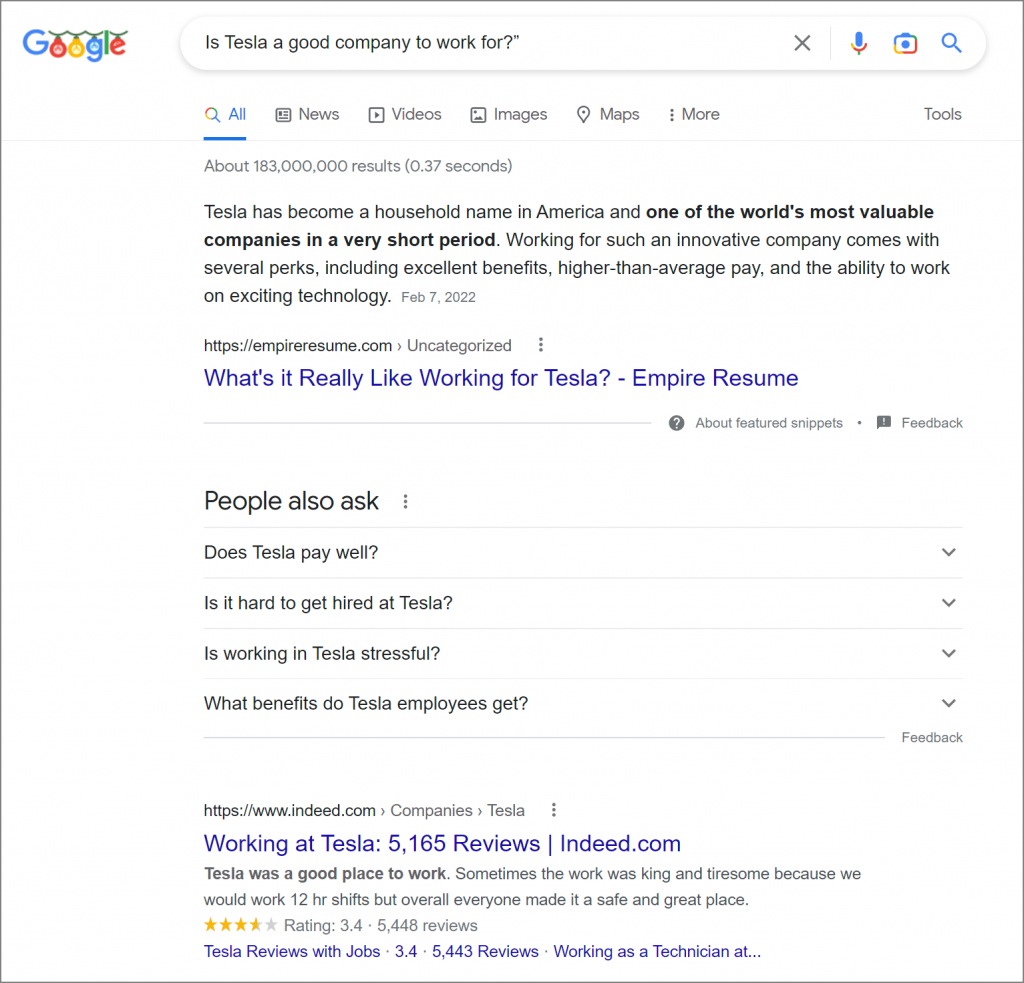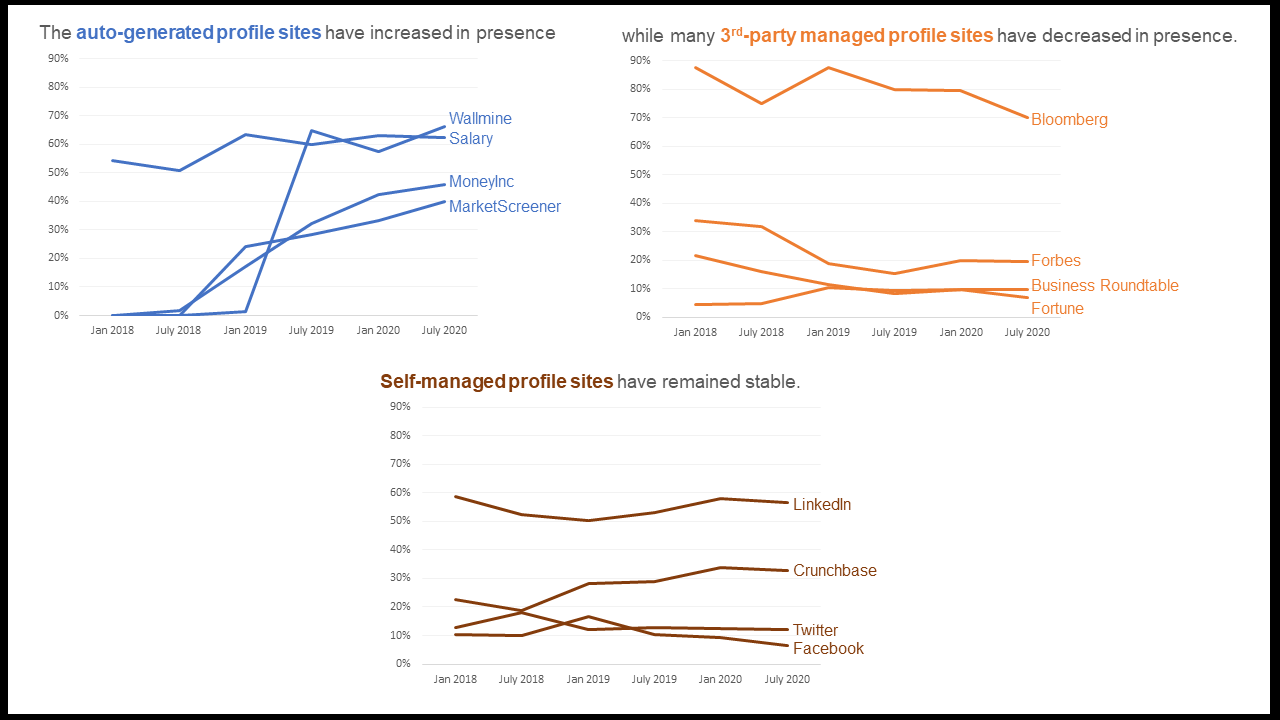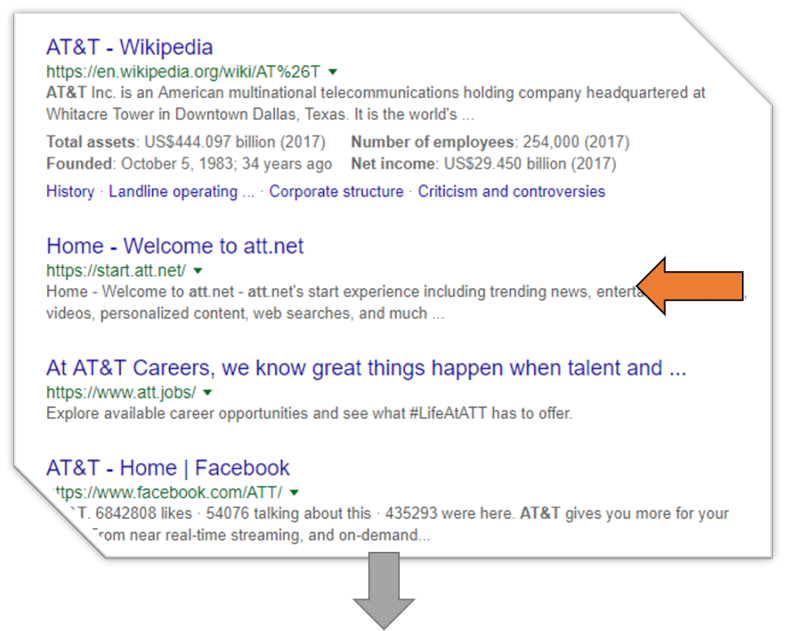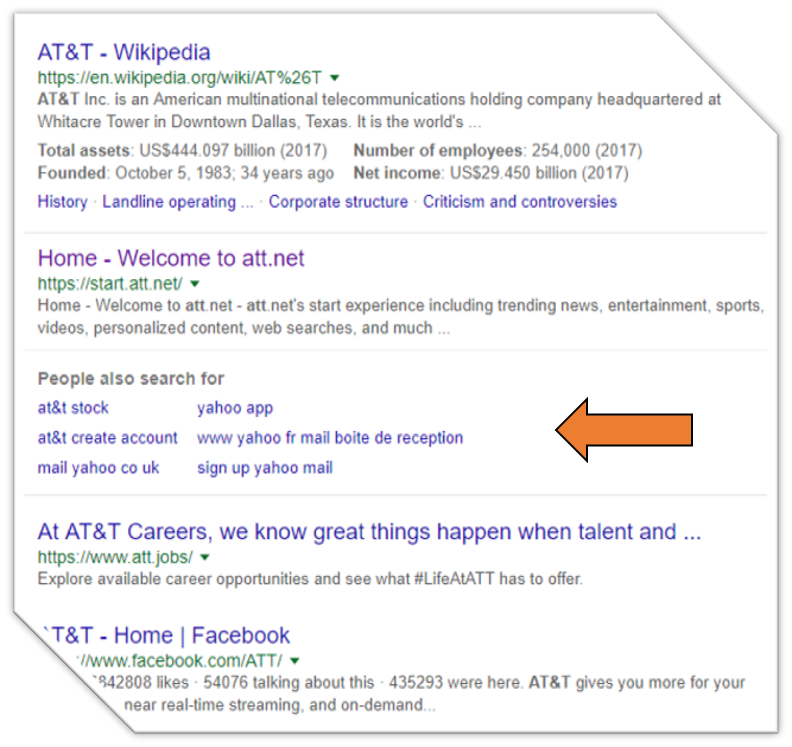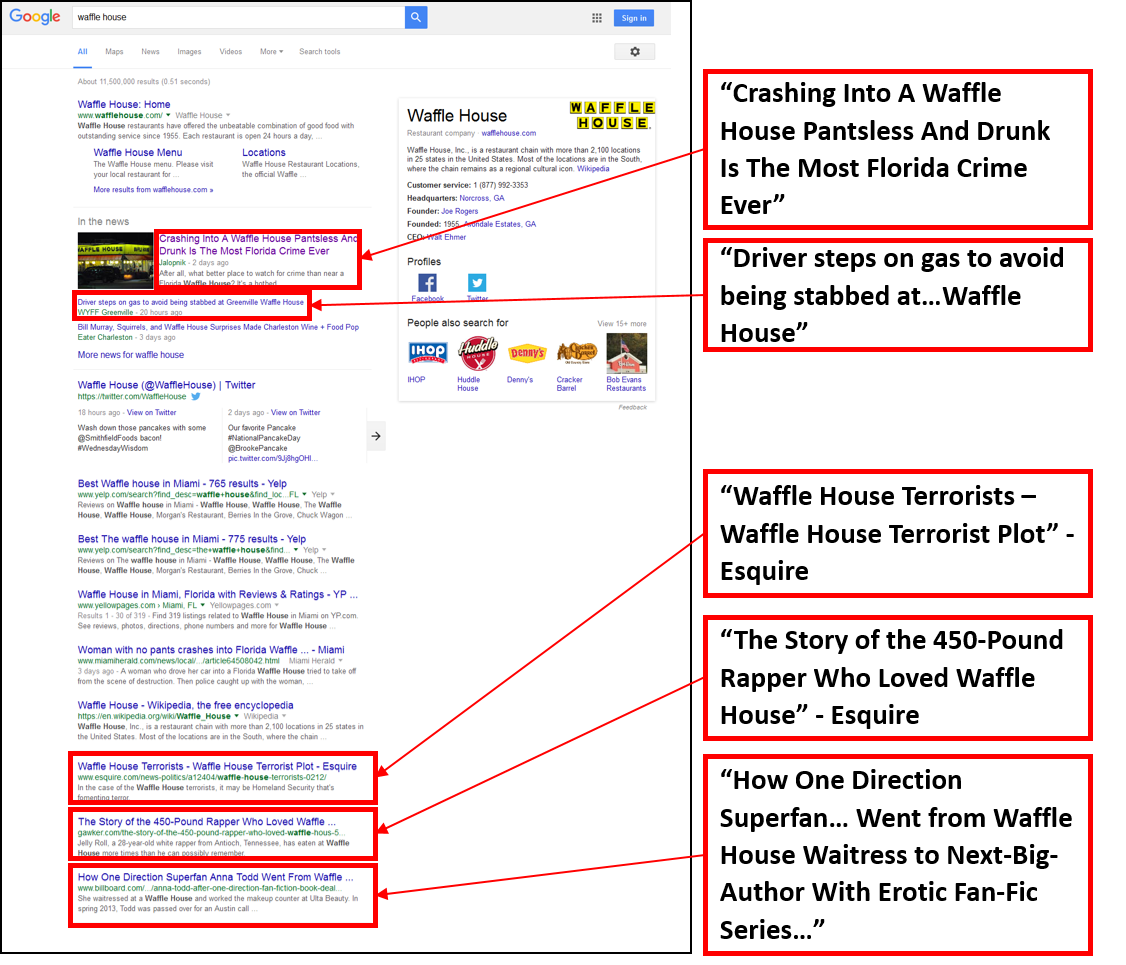AI and the Future of Digital Reputation
Over the past month or so, the internet has been buzzing about the new ChatGPT bot by OpenAI. This moment has been coming for a while, in which AI seems almost ready to take a seat at the human table.
And now the humans are excited. I spent way too many hours asking the chatbot to write sonnets for my kids and sitcom scripts (including a scene from The Good Doctor in which he has to treat a marshmallow who has been badly burned in a fire; At one point the marshmallow actually says to Dr. Murphy, “But I’m a marshmallow!”) All this is making many of us a bit nervous. What does this new technology mean for jobs, education, and relationships? What does it mean for human intelligence?
From a business perspective, one of the questions that interests me the most is: How will a new, pervasive reliance on AI potentially impact the digital reputations of brands and individuals?
There have already been numerous articles written on the subject, many of them with doomsday predictions about the coming irrelevance of everything we once knew. In particular, the New York Times raised a series of challenges that this new technology would pose to Google’s revenue and ethics models, as the company evolves its AI strategy.
As usual, I am more optimistic about our capability to incorporate this new technology wisely.
Google vs OpenAI
Right now, when we want to know about a person or a company we Google it, and we see a list of results that the algorithm thinks (based on various factors) will satisfy the searcher. Deciding which of these results to read (or scrolling on) is up to the searcher, as is constructing a conclusion on their basis.
The search page gives us pieces of information to choose from, but we do the work of picking which ones to read, and analyzing what we read. Searching the way we do now gives us an opportunity to consider: Is that what I really wanted to know? Is there important context available that I might be missing? Do those sources look reliable? Is there bias I am missing?
ChatGPT makes the leap from providing information to performing analysis and stating conclusions. Like Google, it makes some algorithmic decisions about which information to use in its analysis (though less transparently, since it does not typically share sources), and then does its own thinking and analysis in order to provide a cogent answer – one that requires very little work from the searcher. And one that may seem satisfying, in easily accessible language.
Take for example the question: “Is Tesla a good company to work for?”
When I asked OpenAI, I got this back:
Yes, Tesla is a good company to work for. The company has consistently been ranked as one of the top companies to work for and has recently been named one of the best places to work for in 2021. Tesla provides competitive salaries and benefits, a great work environment, and the opportunity to work on innovative projects.
When I typed the same thing into Google, I got much more complicated and thought-provoking results.
- Empire Resume told me it’s a valuable company and has many perks.
- Google then suggested some questions and answers:
- How is pay? Good, according to Zippia
- How hard is it to get a job? Really hard, according to Zippia
- How stressful will it be? Very, according to Business Insider
- How are the benefits? Great, according to Tesla.com
After that, you get to the Indeed.com and Glassdoor.com review sites, where you can see star ratings and read what could be actual reviews from employees. There’s a YouTube video with more information.
You get the idea.
Getting to know the searcher
So what’s the right answer to the question about Tesla? As a human (and one who has spent 18 years focused on search) I think the answer is “it depends.” If the AI understands the searcher’s specific needs, in some cases it will be able to weigh various factors and make better decisions. Google knows a lot about you – where you are, the types of sites you frequent, your interests – and yet its personalization feels very incomplete. AI will hopefully be able to synthesize the facts about you and better predict what you care about.
Of course, much of the burden will fall on the searchers themselves. Just as it took many years to get smart about how to use Google, there will definitely be a learning curve as we learn how to ask AI to help us with complex questions. When search was new, many people clicked on the top results almost blindly, but now most of us have better ways to get to the information we trust. Searchers are likely to use AI in the same way, and they will learn to ask for sources. I can imagine something like Google results alongside the AI results. In fact – a new plug in is piloting just this functionality, albeit in a very cursory way.
As I mentioned above, knowing about the searcher would be invaluable, and would make AI that much more useful as a provider of both information and analysis. If I ask AI for dinner suggestions, it would be good if it knew what ingredients are available in my area (or even in my house) and that my family keeps kosher. While it may sound scary, if it knows that we ate pasta yesterday, and that we are trying to watch our carbs, it will be more likely to suggest roasted salmon with broccoli – not a bad decision.
Where does this leave reputation management?
I believe that in the not-so-distant future, AI will be able to helpfully synthesize a lot of information about brands and executives. This could actually be a great development for brands – assuming that robust, accurate information is available, and that AI is seeing and understanding it.
As its use in search develops, AI will likely be better at ignoring transient negative news cycles, despite their high clickability on Google, especially when in the overall context they are not that relevant to the searcher. My sense is that we are moving to a place where companies will need to make even more efforts to communicate holistically, as they will need to ensure that humans, computers, and now AI, all get a holistic picture of who they are. The rise of AI will make it even more important to carefully curate your digital presence.
This development will be bad news for those who are not working to deliberately plan their online presence, or those who have relied on tricks and manipulations to control their online presence. These companies will now find themselves at the mercy of automated processes which play by different rules.
Google and other search engines are already using AI and smart algorithms in order to choose sources to display, and it is likely that the search of the future will have elements of Google search (providing key sources and context) as well as elements of AI – providing analysis and cogent answers in language we understand. In the meantime, we humans will need to make sure we are firmly in the driver’s seat when it comes to how we want ourselves and our companies to be perceived.
Sam Michelson Unpacks Google’s Algorithm on i24 News
Five Blocks CEO, Sam Michelson, explains how Google usually works – weighing searcher intent, a source’s authority, and other considerations.
He talks with Sarah Williamson about when the algorithm breaks its own rules during a crisis like COVID19.
Just the Facts: The rise of auto-generated profile sites, and what that means about the direction of search
People like to do quick, basic research before engaging in business. As the go-to place for that research, Google’s page 1 has become a kind of dossier about people and brands. This is why the Knowledge Panel (the summary info that typically appears on the top right part of the Google search results page) has become the gold standard for quick stats of notable individuals. It’s also why the People Also Ask box, with its quick and easy question and answer format, has been pushed front and center by Google. It’s as if searchers have repeatedly said to Google, “Just the facts, Ma’am,” and Google has complied.
Typically, results for top CEOs will include their Wikipedia page, their company’s website, top news stories, and various types of profile sites, which provide a quick snapshot of facts for users.
(Note: Perhaps the most interesting data point for many searchers is CEO salary: we found this in a previous study we did on the People Also Ask box. 22% of all questions appearing for Fortune 100 CEOs relate to their salaries.)
We recently surveyed Google results for Fortune 500 CEOs over three consecutive years (on the same dates) to assess the changing prominence of different kinds of profile sites in their top results.
We found that self-managed profile sites – LinkedIn, Twitter, and Facebook (in addition to Crunchbase, which can be self-managed) – have remained more or less stable in terms of their prevalence on page one for CEOs.
At the same time, third-party profile sites, like Bloomberg, Forbes, Fortune, and Business Roundtable have slightly decreased in page one presence for CEOs over the years. Bloomberg, for example, appeared in page 1 search results for nearly 90% of these CEOs through early 2019; today that’s down to 70%.
The sites that have risen in prominence are auto-generated profile sites, which pull relevant information from multiple websites and databases to create a one-page dossier on executives. These sites, namely Wallmine, Salary, MoneyInc, and MarketScreener, have significantly risen in prominence over the years. Wallmine in particular saw a meteoric rise in 2019 – from appearing for just 1% of CEOs to 65% of them within that same year.
What is interesting about this trend toward automatically created “scraper” sites is that they don’t seem to add a whole lot of value. What are they doing that Google cannot do by itself? Google’s algorithm already tends to prioritize pages and sites that help it answer popular questions and meet the common need for quick facts. Google does this by crawling much of the internet and then displaying the best pages and data points.
When companies do the same type of summarizing, this can be useful to visitors…but only for a time.
Some years ago we saw the same dynamic play out with Answers.com. In order to answer questions people often searched online, that site scraped various authoritative sources and created answer pages – which ranked prominently for tens of thousands of terms. Eventually, though, Google applied a more sophisticated duplicate content filter, demoted Answers.com, found other sites that added more original value, and added its own “dossier” features as discussed above. Answers.com simply wasn’t adding enough value to last long term.
So while right now there are several automatically generated profile websites appearing for many prominent individuals, some of which can actually be managed to some extent (MarketScreener offers an option for a paid profile, for example), we predict that these sites will not retain their prominence long- term.
In our estimation, for a site to remain relevant and prominent in Google search, it needs to add unique value, providing information or an experience that other sites do not…and that Google can’t manage on its own with its own knowledge graph data.
Ideally, sites that want to go the distance should be filling a gap – providing some deeper answers to the popular questions people have, adding images or videos where those are missing to flesh out someone’s persona, or providing information in a language that is not covered.
Google is a reflection of what people want to see, and people seem to want to see a quick and comprehensive picture. Staying valuable will require a heavier lift for content writers and researchers. The robots – the automated content aggregators – will need to find some other, more helpful, work to do.
About the author:
Miriam Hirschman., Research Manager at Five Blocks, is driven by an endless supply of curiosity and a deep background in data analysis as she digs for the interesting stories behind the numbers. Because we believe in data and tools but believe in people even more, she reviews massive volumes of search results, seeking patterns and finding order in the often chaotic world of web search.
When Google Must Not Get the Answer Wrong
You have probably noticed that Google has been steadily elevating the prominence of the “question and answer format” for some time.
Google first introduced the People also ask box in 2015. For a while, it was a low-profile feature, often appearing midway or lower down the first page. As with virtually all new features, Google did extensive testing to ensure they are useful to searchers.
By early 2017, the feature began rising in prominence, including appearing for 10-15% of Fortune 500 companies. In November 2018, the People also ask box started appearing for about 80% of companies and grew from there, today appearing for over 90% of the F500.
It appears that Google has figured out not only the kinds of questions people often ask, but that people appreciate the format as an efficient way to find information quickly.
This new format often presents questions we would have been unlikely to ask ourselves (a search for ‘gaming fingers’ brings up both ‘how do you play the game number fingers’ and ‘can playing video games cause trigger finger’), and returns answers with varying degrees of authority, simply because they seem to match well.
That is…unless getting the right answer is a matter of life and death. Then Google interrupts its regularly scheduled algorithms to present results much differently, cutting straight to the most authoritative answer. Nothing brings this home more clearly than the way Google is handling the COVID-19 crisis.
What is going on? Let’s take a deeper look.
The Paths of Search
When you search online, Google does quick triage:
If there is one unequivocal answer – as in ‘Who is the Prime Minister of Canada’ – that answer will generally be delivered in the form of a Featured Snippet or Knowledge Panel. A question and answer box will appear below this, with related questions, answered by various sources.
If your query is something less clear, like “gaming fingers,” Google’s algorithm is not sure of your intent, so it will generally provide a variety of different results to help disambiguate what you are trying to find; you can pick a specific path or decide you know enough from what you’ve read on the search page.
The People also ask box captures frequent intentions – and Google figures that your intent is likely to be similar to one of them.
But what happens when there’s a lot riding on the answer?
When the answer is crucial, like in an impending weather emergency or a search related to suicide, Google overrides its own algorithm – and provides answers that have the greatest likelihood of keeping you safe.
A Tornado warning in the searcher’s area appears in red at the top of the page when they do a weather-related search. In the case of a suicide-related query, a toll-free hotline number appears in a large font at the top of the page, with the text ‘help is available.”
In these cases, even if Google is not sure what you are asking — and even if there are probably a variety of accurate answers to a question like ‘how to kill yourself’ — Google will err on the side of caution.
In these cases Google sacrifices variety, balance, considerations of the searcher’s own history, and any other elements of its algorithm for the most direct route to possibly saving a life.
The Coronavirus Connection
In our current moment, searches for coronavirus or COVID-19 bring up an expanded knowledge panel — almost a mini- site — featuring symptoms, prevention, treatments, and statistics. The area is branded as a red ‘COVID-19 alert’, and all information is provided only by highly reputable sources.
The People also ask box is farther down the page than normal, and is referred to as “Common questions” instead; answers are sourced from highly authoritative sources – most prominently, the CDC.
Along with this new way of presenting coronavirus answers, Google has a new initiative to help medical organizations optimize their sites, so that their information appears prominently in Google searches, and populates the results for these types of medical questions.
SEO Roundtable has summarized the initiative here, in which Google has provided guidance for health organizations on:
- Mobile optimization
- The importance of good page content and titles
- How to analyze the top coronavirus related user queries
- How to add structured data for FAQ content
While it would obviously be easier for Google to simply give all worthy health organizations more weight in the algorithm (using some sort of ‘authority score’), it seems to prefer that these entities assert their expertise organically.
Even more “interventionist”: As of end March, Google began heavily prioritizing local COVID-19-related results, giving more prominence to local publishers as each country began developing unique approaches to fighting the virus.
Balancing Act
It seems that Google is scrupulous about accuracy only when there is a specific unequivocal answer, or when it thinks there might be a case of life and death. Maybe these are the only times Google won’t be called out for using influence in unfair ways?
Google’s opening gambit with health organizations, a half step between the democratic question and answer format and the tightly controlled emergency format, might be an interesting way forward in areas where more authoritative answers may not be immediately crucial, but would be appreciated by users – like nutrition or child-development.
In fact, all companies and professionals, following a best practices optimization strategy (titles, query analysis, FAQ content, etc.) can help establish their expertise on the results page. By assessing what questions people ask, and by answering them in the most relevant and easily understood way, companies may be able to make sure that the answers to the questions people ask are answered by their very own legitimate expertise.
It may not always be an emergency to get the answer right, but users would surely appreciate bumping into more true experts on their search paths.
How Deep is Google’s Love?: Where the In-Depth Articles have Gone (and What it Means for You)
Recently, Google appears to have made a significant change to its search results page that eliminated several in-depth articles for many clients. We’ve taken a deeper dive into this development to see what it could mean for brands and high-profile individuals, and the PR professionals who work with them.
As you know, when searching for a brand or an individual, the Google search results page presents a variety of relevant content pieces and types of media to satisfy the query. Often this means a company’s own webpage will appear at the top, followed by third-party content such as Wikipedia and news sources. There may also be social media results (if an individual or brand actively maintains these platforms), along with image results or video content.
Several years ago, Google introduced a section within top search results they called “in-depth articles”. These results looked very similar to other search results, but came from longform media outlets like Variety, Rolling Stone, or The New York Times Magazine. Often, they were a seminal article about the brand in question – articles that may have been placed by their PR teams.
Including these articles on the top results page seems to have been Google’s way of ensuring that a greater variety (and deeper) content would appear in this prime spot. Their inclusion, and the actual articles that appeared within that section, were governed by a different set of algorithms than most search results.
Recently, this section disappeared from all search pages for brands and executives. This happened without any announcement or acknowledgment on the part of Google. It is important to note that in-depth articles for many brands and individuals contained negative content. At the same time, it was the place where particularly engaging longform journalism made its way onto the prime real estate of Google page 1 for a brand.
The ramifications of Google’s elimination of this section are yet to be seen, and their motivation can only be assumed to be “less intervention” following high profile criticism of potential bias in their algorithms.
A whole host of interesting questions arise from Google’s move: What is the corporate (and civic) responsibility of those who hold the world’s data in their hands? Are there cases for intervention? Who decides what those are?
It is interesting to note that alongside this mysterious disappearance, a recent Five Blocks study of CEO search results found there are far fewer news sites (sites such as CNN, CNBC, and others) on the first couple of pages of searches for a CEO compared to a year ago. In addition, those pages feature many more profile sites, where one would find more dry facts (often created by the brand), and less news.
This marked difference in the presence of news within the organic results over the course of the past year, alongside the recent removal of the in-depth article section, means that page 1 of search for brands and individuals will contain far more“owned” content – i.e.: information they control.
For some brands this would appear to be a positive turn of events, but for many this trend means they will not automatically have great media pieces (which they often earned by being genuinely great) appear prominently in searches. It means they will need to work harder to deliberately ensure that the best third-party media does in fact place highly within their profile. Savvy communications teams will find ways to enhance their brands’ online presence within these brave new parameters.
— Sam Michelson, with Sara K. Eisen
Learn about Digital Reputation During a Crisis at the 2019 PR News Crisis Management Summit in Miami Beach – Thursday, February 28th
When crisis strikes, a company’s digital reputation becomes stressed and vital to their health. Five Blocks President, Howard Opinsky, will offer his insights at the Summit on the impact that crises have on digital reputations and what brands and individuals can do to prepare to weather the storm. Our team of digital reputation experts will also be on-hand to discuss how you can take control of your internet search results and shape them to best reflect your real profile. Join us at the Summit on February 27-28 in Miami Beach and don’t miss Howard and fellow panelists as they recount some of the best handled B2B crises and best practices in crisis preparedness at two sessions on Thursday, February 28. Learn more about the PR News Crisis Management Summit here.
Five Blocks President Howard Opinsky speaks with PR Week on Bezos’ response to AMI

“We’re not even close to the beginning of the beginning to how information will be wielded as a weapon of war and business,” Opinsky said…
Five Blocks awarded Gold dotComm Award
Five Blocks is excited to share the news that we have been awarded a Gold dotComm Award from AMCP in the SEO category.
We’re humbled and privileged to have worked with Dr. Joyce Banda, former president of the country of Malawi, to help her defend herself against defamatory information spread by corrupt political opponents.
A very special thank you to our dedicated team members for their excellent work, and of course to AMCP for selecting us from among thousands of prospective winners.
Gold Award- Digital Marketing & Communication Campaigns
Our Gold Award is a humbling affirmation of the efforts we put in to support prominent individuals and leading companies by allowing them to take control of their digital messaging and protect their reputations. The web environment is dynamic and continuously evolving, and our success in this area has been a direct result of the hard work and creativity of our team.
AMCP and the dotComm Award
We are especially honored to have earned recognition from the Association of Marketing and Communication Professionals, one of the oldest and most respected evaluating organizations in the industry. In determining winners for the dotcom award, AMCP seeks “excellence in web creativity and digital communication.” The dotComm Award is a reflection of our creativity and our ability to pivot in the dynamic online ecosystem.
Digital Reputation Trends – 2018
Over the first half of 2018, we have seen the search engine results continue to evolve from being a doorway to information to being the destination itself. This is not only evident in the composition of the search engines, but also in how users perceive the results (per the 2018 Edelman Trust Barometer).
I have continued to see clear attempts by Google to satisfy users and answer their question without any extra steps, by introducing several interesting changes to the search page functionality:
Ownership of the information
In June 2018, Google rolled out verification of the knowledge panel to more entities and notable individuals. This ability to take over the knowledge panel signals that Google wants entities to participate in providing factual information so that the searchers are provided the summary of an entity without having to search elsewhere.

Videos Carousel on the page
One of the latest changes Google has brought to the results page, following closely on the heels of Bing, is a video carousel similar to the already existing image box. While this could, potentially, reduce traffic to YouTube, the ultimate goal of immediately satisfying users apparently preempts the potential loss of YouTube advertising revenues.
Improved Search Suggests
A very recent addition to the features on the search page is enhanced search suggest.
When users click on a result and later return back to the search engine results page, Google sees they are searching for additional information and now suggests ancillary search queries directly below the original result. This feature precludes the need to do additional searches to find what the user may be looking for.
Continuous Scrolling
On mobile, Google has introduced a significant change with Facebook style scrolling, essentially creating an endless page of information. Stay tuned as this might come to all search results pages – not just mobile.
Outlook
Our outlook calls for search engines to continue efforts to provide the exact information the user seeks, ideally within the search page itself. We expect to see search engines return more content previously contained deep within other websites. It will be interesting to see how websites balance their desire to be listed within Google and Bing, and their need to hold onto their own data. Searchers will continue to demand more of the engines – who will do their part to provide the best information they can.
Hiring a Reputation Management Company for Your Business
Choosing a reputation management company can be a tough decision.
“Plenty of these companies are perfectly above board, but some reputation management firms employ unethical or even illegal practices that can land their clients in even hotter water if they’re not careful. ”
“It can be difficult to identify shady online reputation management companies,” said Sam Michelson, CEO and founder of digital reputation management firm Five Blocks. “A few telltale signs include the inability to find out who stands behind the company, tactics that include creating a lot of articles, and no clear explanation of the work being done behind the scenes.”
Google Serves Up a Fail for Waffle House
I’m not from the South and have never been to a Waffle House. So, without ever having given it too much thought, I could only imagine that eating there is probably fairly similar to any other fast food experience. Today, though, I had occasion to search for Waffle House on Google. Based on their search results, with all due respect to customers of Waffle House, I have learned that Waffle House seems to be a magnet for the lowest class of society. Highlights from their search page include:
As an SEO researcher, I am particularly intrigued by the in-depth articles Google’s algorithm selected for inclusion here. In-depth articles often appear in search results for a known entity, such as a person, company, brand, or concept. They appear as a group of three articles and are typically long form journalistic coverage of the searched term. Often, their coverage has a negative slant. For example, one of Apple’s in-depth articles is “iPhone Killer: The Secret History of the Apple Watch.” For Uber, we find “The Inside Story of Uber’s Radical Rebranding.”
But these in-depth articles aren’t about Waffle House at all. They are stories about people, some crazy people, whose lives happened to intersect with Waffle House. Is that really what people searching for Waffle House are interested in finding? More than anything, they create a highly unfavorable impression of Waffle House, even though these stories have little to do with the brand itself.
Yes, these articles all mention Waffle House and yes, they are all long form journalistic coverage. In that sense, Google’s algorithm got it right. But I think nature abhors a vacuum and Google abhors one even more. In the absence of any other in-depth article-worthy coverage of Waffle House itself – positive or negative – Google’s algorithm scraped the bottom of the barrel and came up with these.
Ultimately this is one big fail for Google’s algorithm that leads to an even bigger fail for the Waffle House brand. Google is probably the best place to go when you want to size up an individual, company or brand. You are quickly exposed to a variety of sources and types of information: corporate website, social media, news, YouTube, Wikipedia etc. But when Google gets it wrong – as they do in this Waffle House example – the cost can be very high for the brand, with stakeholders getting a negative and undeserved impression of the brand.
Digital Reputation Management: It’s Not All About Burying Results

I posted the following on Business Insider in response to a post that focused on the underbelly of the Digital Reputation Management industry.
Many companies and individuals who have online reputation issues are not trying to bury negative reviews or articles. Instead, they are working to make sure that people searching for them online find what they are looking for. This need often arises when the brand or individual has not made any effort to create an online presence (think either a minimal website or none at all, no participation in social media, no business profiles, no YouTube channel, etc.)
Take for example a financial services firm which mostly arranges M&A’s. An article on a popular business news website portrays a potential upcoming deal for the company in a negative light – probably due to the author’s view of the industry in which the company is involved. The financial services company isn’t active online. They have a one-page website that does not appear prominently in searches online. Most of the prominent mentions of the firm seen in a Google search contain contact information, SEC documents and occasional mentions on investor portals.
The goal of an online or digital reputation management program for this client (and many like it) is to help the client present their brand appropriately online. There really is no need to subvert any search engine algorithm or bury any results.
The Digital Reputation Management program would consist of elements such as:
- Building out the current website so that it is technically sounds and contains content that will help it rank well in search engines.
- Creating company and individual profiles on sites like: LinkedIn, CrunchBase, and others.
- Working with Wikipedia editors to correct any incorrect information appearing in Wikipedia – including providing sources to editors that they can quote.
- Registering the brand and key individuals on social media websites that may be appropriate to use in the future (Twitter, Google+, etc.).
- Working with the client’s communications team (or their external PR firm) on opportunities for publishing thought leadership materials in one or more relevant media outlets.
In short, there are many tools at the disposal of digital band management professionals that, rather than being exercises in removing negativity, are proper digital branding and communication efforts. Rather than focusing on fooling the algorithm (in the long term Google will beat you!), serious companies should be considering digital reputation management strategies and tactics that take advantage of Google’s algorithm and its ability to detect relevant, authoritative content from a variety of sources.
